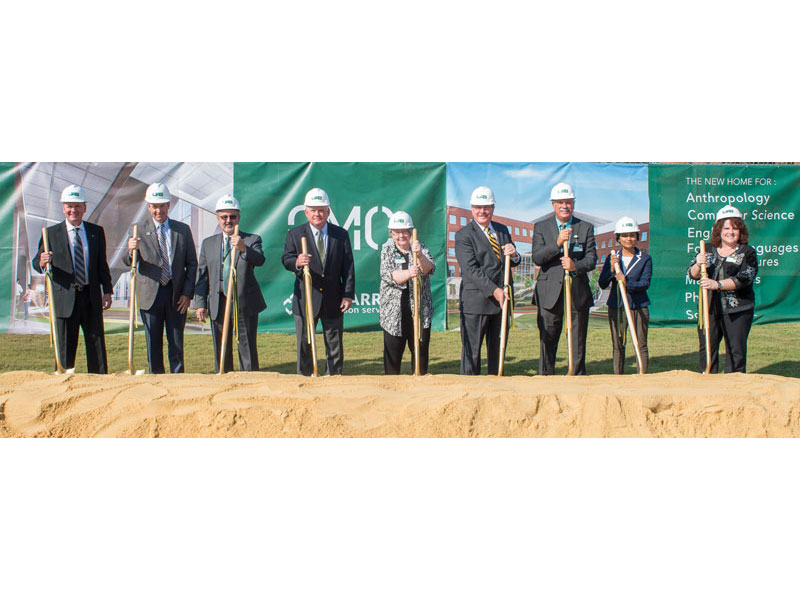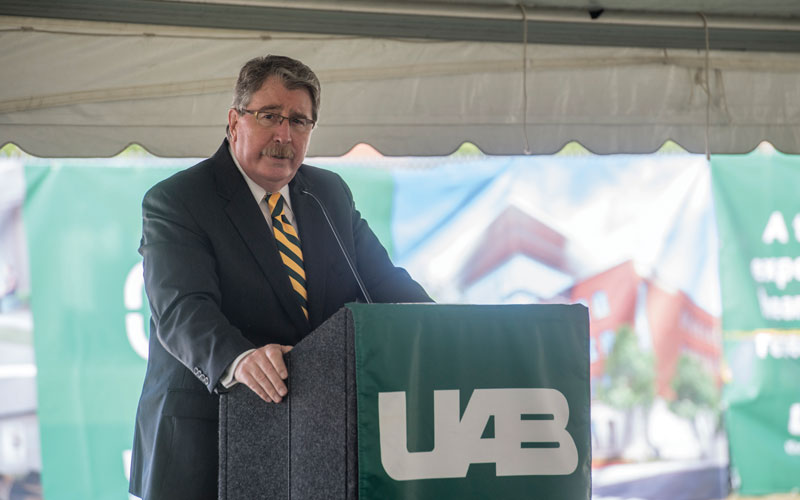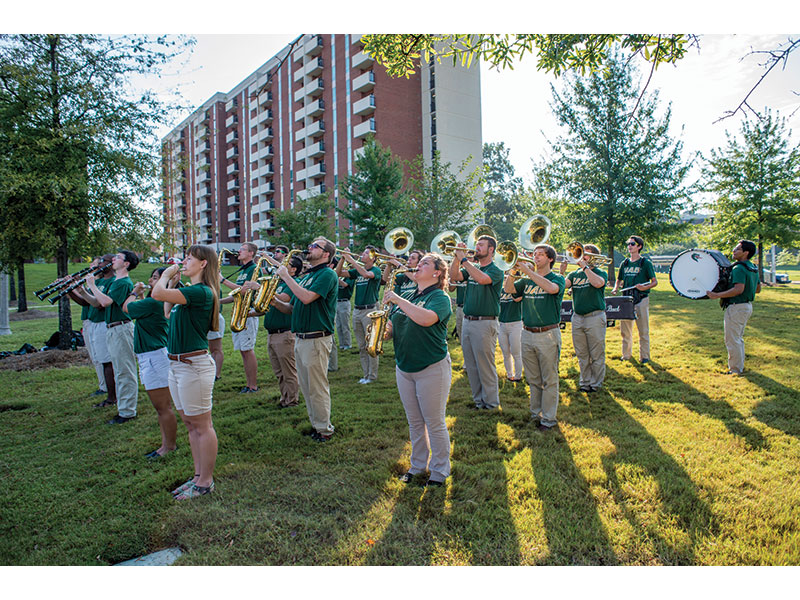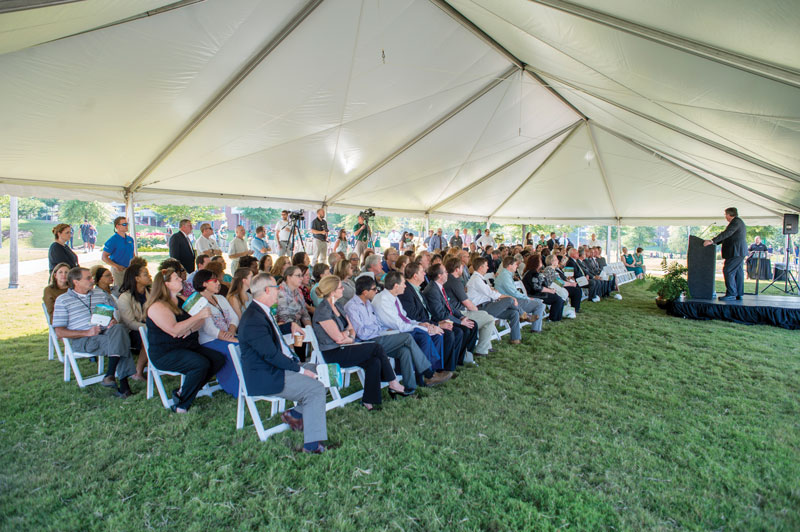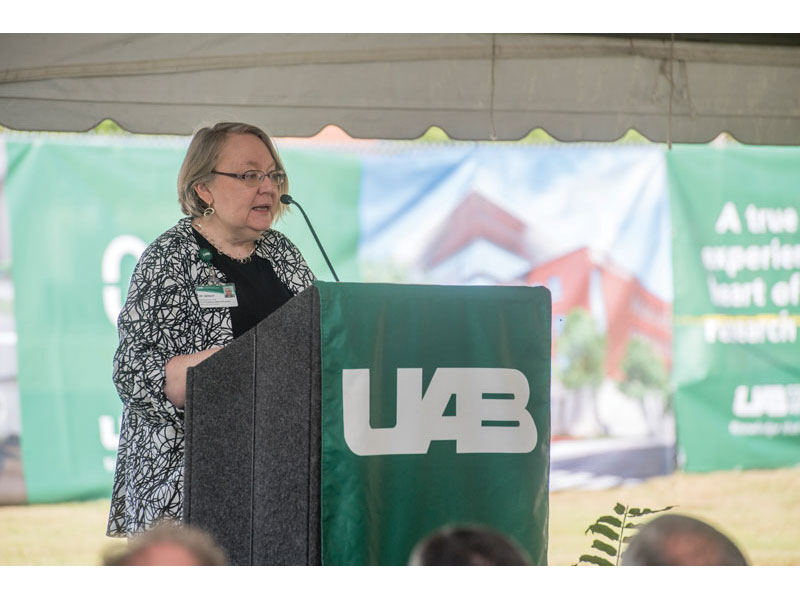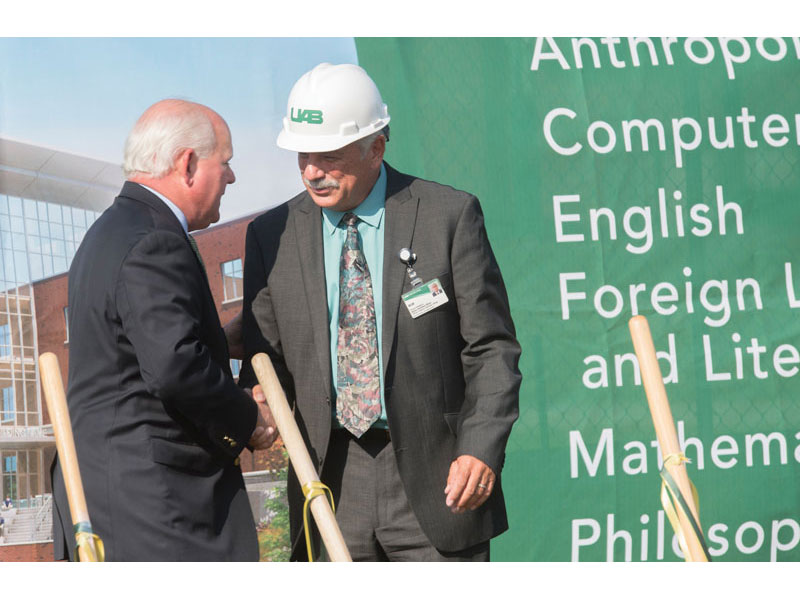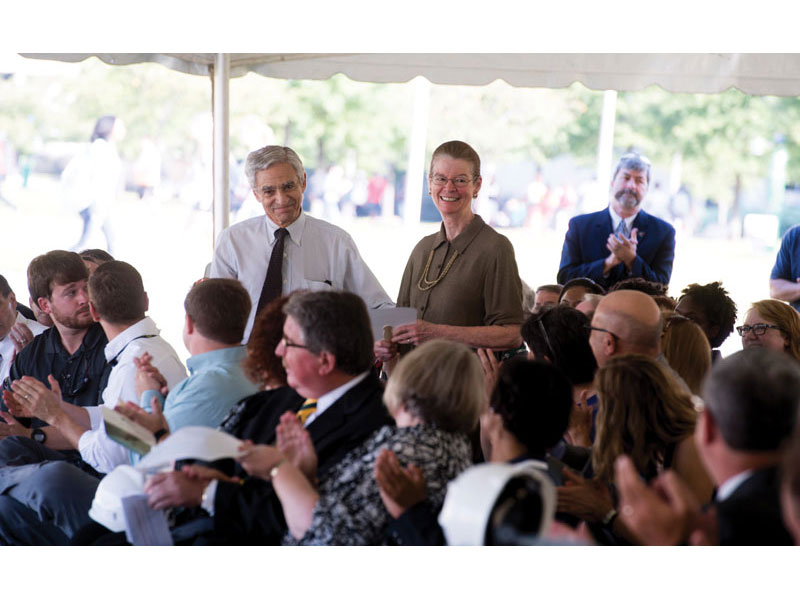Dean Palazzo, along with President Ray Watts and Provost Pam Benoit, joined several invited guests to celebrate the groundbreaking for our new arts and sciences academic building on Tuesday, September 19, 2017. Members of the UAB Pep Band welcomed attendees, including UAB senior administrators, representatives from UAB Facilities, deans, department chairs, faculty, staff, and students. Special guests included employees of contractor M.J. Harris, architecture firm Goodwin | Mills | Cawood, and the first donors to the building: Philosophy faculty members Dr. Greg Pence, chair, and Dr. Ted Benditt and his wife Anne. After President Watts, Provost Benoit, and Dean Palazzo gave their enthusiastic remarks, they joined the groundbreaking ceremony with fellow shovelers Wes Calhoun, College Alumni Board President; Mike Rodgers, UA System Vice Chancellor for Construction Management; Allen Bolton, UAB Vice President of Finance; Bob McMains, UAB Chief Facilities Officer; Mugdha Mokashi, President of the Undergraduate Student Government Association, and Amy Evans, Executive Director of Operations for the College.
New Building Groundbreaking
Arts & Sciences Magazine
CAS News
October 17, 2017
More News
-
 Boosting levels of a protein could relieve pain after surgery, reducing reliance on opioidsUAB researchers share a discovery that could pave the way for non‑addictive alternatives to opioid painkillers amid an era of rising overdose deaths.
Boosting levels of a protein could relieve pain after surgery, reducing reliance on opioidsUAB researchers share a discovery that could pave the way for non‑addictive alternatives to opioid painkillers amid an era of rising overdose deaths. -
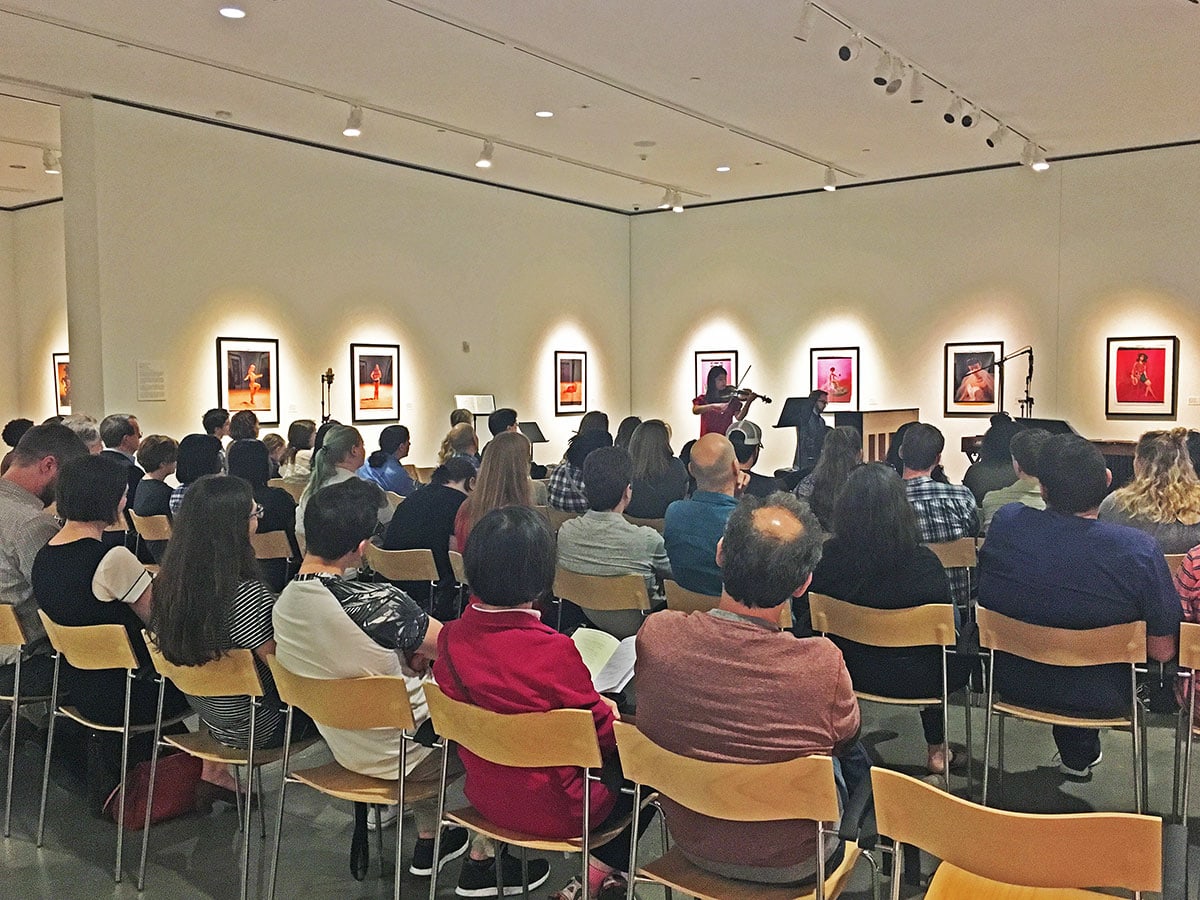 Experience music performed live in the AEIVA galleries, Feb. 16 at UABIn this free Chamber Music @ AEIVA program, “Luna: A Celebration of the Moon,” hear music inspired by the art on show and performed by faculty and guest artists from the Department of Music.
Experience music performed live in the AEIVA galleries, Feb. 16 at UABIn this free Chamber Music @ AEIVA program, “Luna: A Celebration of the Moon,” hear music inspired by the art on show and performed by faculty and guest artists from the Department of Music. -
 UAB Online leads Alabama in multiple categories in U.S. News Best Online Programs rankingsU.S. News & World Report Best Online Programs gives UAB high marks, including a Top 5 national placement.
UAB Online leads Alabama in multiple categories in U.S. News Best Online Programs rankingsU.S. News & World Report Best Online Programs gives UAB high marks, including a Top 5 national placement.
